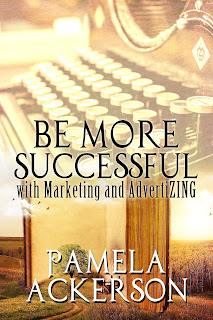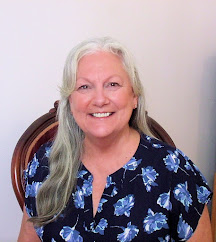Graphic Book Images, Ugh!
Part One
Hopefully, by the end of this article
you’ll have a better grip on understanding book graphics, images, and the
difference for digital and print ads.
The language for photo programs are
similar. You don’t need to have the knowledge to create an ad. That’s what
graphic artists are for, that’s why you pay them to create a beautiful cover,
and/or ad. But, you should know what you’re receiving and how it can be used.
There are multiple formats: jpg, jpeg,
jfif, gif, bmp, png, tiff, and pdf to name a few. If you want to know what
format your image is, you can hover over the image on your computer and it will
tell you what the format is, or item type, and dimension. (300 x 450) It may or
may not tell you the bit size, for example, 1mg.
As an author, there are many times when
you want to create your own ad, and this is where we’re going with this
article. Hopefully, I’m going to help you stop saying “ugh”.
First we’ll start with digital ads. You
may have to do some digging to figure out where your commands are on the
program you’re using, especially since you may not have the same program I use.
Dpi is dots per inch.
This is a 72 dpi image, jpg, at 3 x 2.
Compacting the images helps save space on
your computer but doesn’t keep the picture at the quality needed. This image
will look a little better in the digital issue. However, it doesn’t do the
image justice.
Below is the same image, 72 dpi, jpg, at
15 x 10. The size is manually adjusted for pdf to 3 x 2 without creating pixelation.
When you resize manually, it compresses the picture avoiding pixilation.
When I say manually adjusted, I have
highlighted the image and used the size-square with my curser to shrink the
picture. I didn’t resize it in a photo program.
How can you make your images look sharp
and professional? I prefer jpg or png when I create ads for myself and for the
magazine, regardless of whether it is for digital or print.
Resizing incorrectly can effect color,
pixilation, and distortion. For digital ads, I prefer using 150 to 225 dpi.
Depending on the photo program you use depends on how you will resize your
image. The main reason why I prefer the 150 to 225 is because text tends to
pixelate more than a picture. If I raise the dpi from 72 or 96 to 150 or 225,
it avoids text pixelation.
Part Two March 30th!
This book’s for you. My whole point of writing it is to help all authors. I’ve had many established authors, aspiring authors, and WIP authors ask me a multitude of questions and I was more than happy to help. (WIP-work in progress) I took the most commonly asked questions and solutions and put them in a nifty, absolutely priceless book.
What you’ll find in Be More Successful with Marketing and AdvertiZING:
Social Media Marketing and AdvertiZING for Books or Any Business
Becoming a Bestseller
Saying NO and Being the Bad Guy
How to Write Incredible Click Enticing Promotions
Promoting Your Book With or Without a Publisher
How Much is That Advertisement in the Window?
Self-publishing Doesn’t Have to be a Disaster
How to Make Your Website Awesome
Taking the Plunge into Publishing Audio Books
How to Make More Sales at Book Signings
The Uniform of Success
Purchase Be More Successful with Marketing and AdvertiZING at your favorite bookstore or on Amazon.
E-Book $4.99
Paperback $9.99
Thank you for taking the time to read this.
You can find me:
Amazon.com/Pamela-Ackerson/e/B00QY1ARI4
Wondering what my qualifications are? Don't want to get any advice from someone who doesn't know what they're talking about? I understand! There are too many people out there giving bad advice.
The first thing I'm going to tell you is that the book industry is constantly changing and even the "experts" have to keep their ears to the ground to stay in the game!
Okay, so...Here goes.
I'm President of Marketing and Advertising for AdC Magazine. Affaire de Coeur Book Review Magazine has been in business since 1980. No small potatoes there! We've managed to survive all the ups and downs in the industry. www.adcmagazine.com
I'm an award-winning, Wall Street Journal, Amazon and Barnes and Noble bestselling author. I've been a published author since 1972. Yup, you read that right. My 10th grade high school teacher entered my sci-fi short story in the Science Fiction Reader's Digest Contest and I took first place. I continued to write and publish short stories for several years after that.
A short break--which felt like forever--in 1996 I finished my first novel. I was picked up by a publisher two years later and I haven't stopped since.




No comments:
Post a Comment